Legal Services
Legal Services in Indiana, Michigan, and Florida
Planning for the future is crucial, and I’m here to make the process seamless and reassuring. Whether you’re focused on estate planning, navigating elder law, or dealing with the intricacies of probate, my goal is to provide compassionate and helpful legal services in Indiana, Michigan, and Florida to help you make informed decisions.

Estate Planning: Protecting What Matters Most
Who will make decisions about your bank accounts, family car, property, health care, or children if you’re unable to? Estate planning provides critical answers before unexpected life events occur. It empowers you to designate who will speak and act on your behalf during temporary incapacitation or after your passing.
This planning is essential for everyone—young families, parents of minor children, and individuals wishing to alleviate the stress and confusion their loved ones may face. Secure your family’s future now with a personalized plan that reflects your life, assets, and wishes.
What’s Included in Estate Planning?
Estate planning encompasses more than just creating a will; it involves a comprehensive suite of legal documents designed to ensure your voice is heard even when you cannot speak for yourself. Here are some of the key services I offer:
Will Preparation
Your Will outlines how your estate should be managed after your passing. An improperly prepared Will may open the door for arguments and give the state the authority to make decisions for you.
Once a person passes, your documents are submitted to the probate court for review. When a Will goes to probate, the court reviews its validity. If deemed invalid, state laws take over, potentially disregarding your detailed instructions. I will guide you in creating a legally sound, clearly articulated Will that aligns with your intentions, leaving no room for error.
Durable Power of Attorney and Advance Directives
Accidents and illnesses can occur at any age, leaving you unable to make your own financial, or family decisions. A Durable Power of Attorney (DPA) allows you to designate a trusted individual to manage your finances during times when you cannot. This ensures that someone who understands your values is prepared to advocate for your interests.
Advance Directives offer essential guidance to your loved ones and medical professionals regarding your health care preferences, including your choices about life-sustaining measures. These documents alleviate the burden on your family and ensure your medical care aligns with your beliefs and allows access to your medical information to those you want to get it.
Trusts
Trusts can provide increased flexibility and privacy compared to a will. Depending on your needs, a trust can help:
- Avoid probate.
- Manage assets during incapacity.
- Control the timing and manner of asset distribution to heirs.
- Provide for minor children or individuals with special needs
- Provide for treasured pets
Creating a valid and effective trust requires careful drafting. I will help you determine whether a trust is suitable for you and ensure it is structured correctly from the outset. Sometimes a meticulously crafted will suffices; other times, a trust offers additional protection. Together, we can identify the best solution for your goals.
Start Planning with Confidence
Whether you’re beginning to explore estate planning or updating an existing plan, I strive to make the process clear, supportive, and easy to understand. You don’t have to navigate this journey alone—I’m here to assist you every step of the way.
Let’s talk. Your first hour is free.
Elder Law: Specialized Support for Seniors and Individuals with Special Needs
As the landscape of support systems and benefits for seniors and individuals with special needs continually evolves, navigating these complexities can be overwhelming. That’s where elder law comes into play—addressing the unique challenges faced by older adults and those with disabilities, beyond traditional estate planning.
How I Can Help
My services include planning for long-term care costs, understanding and accessing private, state, and federal benefits such as Medicaid and Medicare, guardianships, special needs planning, and addressing other legal matters impacting the elderly and disabled.
With my specialized training and experience, I’ll help you confidently navigate these complexities, providing compassionate guidance and practical strategies tailored to you and your family’s needs.
Let’s talk. Your first hour is free.


Probate: Guiding You Through Life’s Legal Transition
When a loved one passes away, transferring their property and settling their affairs can be an overwhelming experience. The probate process ensures that property is distributed correctly and debts are settled according to the law.
Understanding Probate: Intestate (No Valid Will) vs. Testate (With A Valid Will)
Intestate: When there is no valid will, the state determines who inherits the estate, following a formula established by the state, that may not reflect your loved one’s true wishes. An improperly prepared will can also trigger this default process.
Testate: If a valid will exists, the probate court’s role is to confirm its validity and appoint a personal representative to execute its instructions. This representative is responsible for notifying creditors and heirs, paying debts, and ensuring assets are distributed as outlined in the will.
Why Probate Matters
In Indiana, not every estate has to go through probate. If an estate’s assets exceed $100,000, it typically must undergo probate. This process can be lengthy and involves strict legal steps to protect the rights of heirs, creditors, and the estate.
In the state of Indiana, if all of the assets of the estate are under $100,000, then there is a simple process called “small estate affidavit” that can be filed. Indiana Legal Help (ILH), created by the Indiana Bar Foundation, offers resources to guide residents through these challenges. Learn more at Indiana Legal Help. I can also assist you in this process.
How I Can Help
Probate doesn’t have to be confusing or overwhelming. With my expertise, I’ll help ease the burden by carefully outlining the process and guiding you with compassion and efficiency. Together, we’ll ensure the plan in place will ensure your estate is settled according to your wishes with the least amount of stress to your loved ones.

